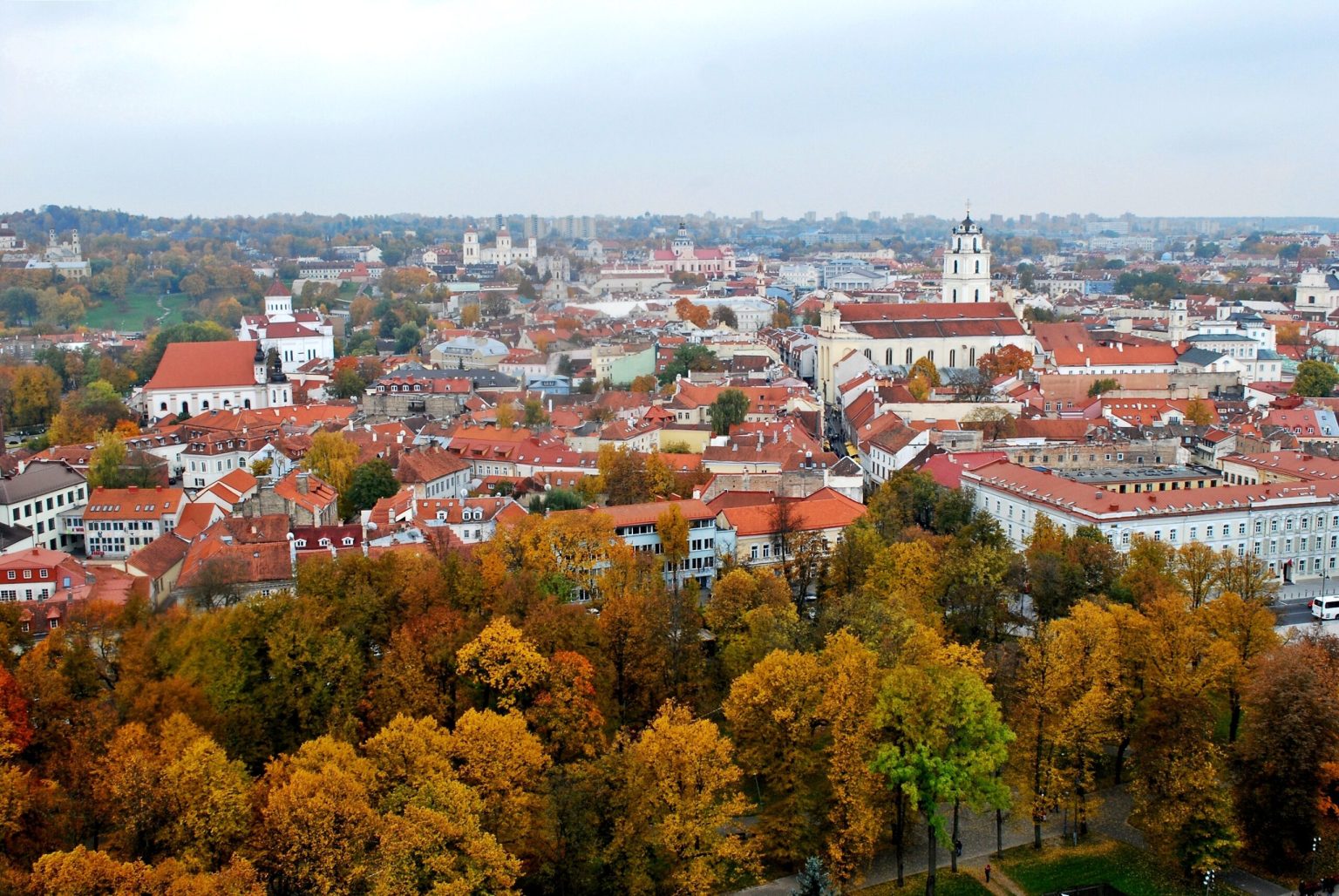Listen to the article
Following Russia’s efforts to sow discord, Lithuania grapples with rising political disinformation as fringe actors enter mainstream politics. While Lithuania remains firmly committed to Western alliances, Kremlin-backed narratives questioning Ukraine support and even Lithuanian sovereignty have found new domestic amplifiers.
Political figures like Eduardas Vaitkus, who garnered over 104,000 votes in the 2024 presidential election, have begun echoing Russian talking points in Lithuanian politics. Vaitkus built his campaign on claims that Lithuanian media is “bought and paid for” by Brussels and Washington, while arguing that Europe should end all assistance to Ukraine, including humanitarian aid.
“Why should we suffer for someone else’s war?” Vaitkus asked in a TikTok video that quickly went viral. Within days, Russian-language Telegram channels had translated and reframed the content as evidence that Lithuanians “are waking up” to supposed Western manipulation.
Vaitkus largely disappeared from public view following the election, only to resurface in Minsk at a meeting with the pro-Russian Belaya Rus party. According to Belarusian media, Vaitkus declared Lithuania’s presidential election illegitimate and claimed the country was heading toward “the destruction of its nation and statehood” – statements now being investigated by Lithuanian authorities.
Meanwhile, Remigijus Žemaitaitis, another presidential candidate who leads the Nemuno Aušra party in the ruling coalition, continues to spread disinformation primarily through Facebook. His tactics often involve selectively quoting or misrepresenting mainstream news to fit anti-establishment narratives.
Žemaitaitis is currently facing legal charges for hate speech after claiming Jews were a “sub-species” and sharing antisemitic wartime poetry encouraging violence. He resigned from the Seimas (Lithuania’s parliament) before his mandate could be revoked, preserving his eligibility for future elections.
Earlier this year, Žemaitaitis publicly stated he saw no reason to visit Ukraine “unless it was to study its corruption,” following a dispute with Seimas Speaker Saulius Skvernelis over additional defense funding. His frequent calls to prioritize “Lithuanian interests” over NATO and EU commitments mirror Kremlin narratives aimed at weakening Western alliances.
Russia’s disinformation strategy extends beyond politics into historical revisionism. Kremlin-linked Telegram channels have been promoting claims that Lithuania “did not exist in the Middle Ages” and was “invented” by Western powers after World War I. These narratives suggest the Grand Duchy of Lithuania was a Slavic creation and that the 1918 independence movement was orchestrated by Western powers.
“This year, Russia even published a book on Lithuanian history supporting similar falsehoods,” notes Dominykas Rimaitis, a journalist with Lithuania’s national public broadcaster LRT who has been tracking these developments.
Such historical revisionism, though absurd to historians, serves a strategic purpose: delegitimizing Lithuania’s statehood by undermining national memory and identity. The tactics typically involve seemingly innocent questions, unsourced historical maps, or misleading “curious facts” designed to plant seeds of doubt over time.
Security experts point out that disinformation doesn’t need to be sophisticated to succeed. Its effectiveness lies in simplicity – presenting complex geopolitical realities in black-and-white terms of good versus evil or patriots versus traitors. Common techniques include selective framing that omits contradictory information, emotional appeals that bypass critical thinking, and placing real images or quotes in false contexts.
For many Lithuanians disillusioned with their government, figures who position themselves against the establishment can appear as truth-tellers, even when spreading narratives that ultimately serve foreign interests.
The phenomenon illustrates how disinformation in Lithuania has evolved from an occasional nuisance to a structural feature of the political landscape. While the Kremlin benefits from the resulting polarization, domestic actors often amplify these messages – intentionally or otherwise – with democratic resilience becoming the primary casualty.
Verify This Yourself
Use these professional tools to fact-check and investigate claims independently
Reverse Image Search
Check if this image has been used elsewhere or in different contexts
Ask Our AI About This Claim
Get instant answers with web-powered AI analysis
Related Fact-Checks
See what other fact-checkers have said about similar claims
Want More Verification Tools?
Access our full suite of professional disinformation monitoring and investigation tools




10 Comments
This is a concerning development in Lithuania. Disinformation campaigns can undermine democratic institutions and sow social division. It’s crucial for the government and civil society to counter these narratives with facts and transparency.
Agreed. Lithuania must remain vigilant against foreign influence operations. A strong, independent media and public awareness campaigns can help inoculate the population against manipulation.
It’s disheartening to see how quickly Russian-language channels were able to reframe and amplify the comments from the Lithuanian presidential candidate. This underscores the need for robust media literacy education and international cooperation to counter cross-border disinformation.
The role of social media in spreading Kremlin-backed narratives is troubling. Lithuania should consider policy measures to combat the viral spread of disinformation, while upholding principles of free speech and open discourse.
Agreed, a balanced approach is needed. Outright censorship is not the answer, but greater transparency and accountability for social media platforms could help limit the amplification of harmful narratives.
The meeting between the Lithuanian candidate and the pro-Russian Belarusian party raises red flags. Maintaining strong ties with Western allies and upholding democratic principles will be crucial for Lithuania to withstand these external influence attempts.
Well said. Lithuania’s commitment to its democratic values and Euro-Atlantic integration must remain steadfast, even in the face of these concerning developments.
This is a timely reminder of the ongoing threat of foreign disinformation campaigns targeting democracies. As a small Baltic state, Lithuania faces unique challenges in safeguarding its political landscape. Robust civic engagement and a resilient civil society will be key to overcoming these challenges.
Fringe political figures echoing Kremlin talking points is a worrying trend. However, I’m encouraged to see that the candidate Vaitkus largely disappeared from public view after the election. Diligent fact-checking and pushback against false claims is key.
You make a good point. It’s important not to give disinformation outsized attention, as that can inadvertently amplify its reach. Focusing on strengthening democratic institutions and public trust is likely the best long-term strategy.